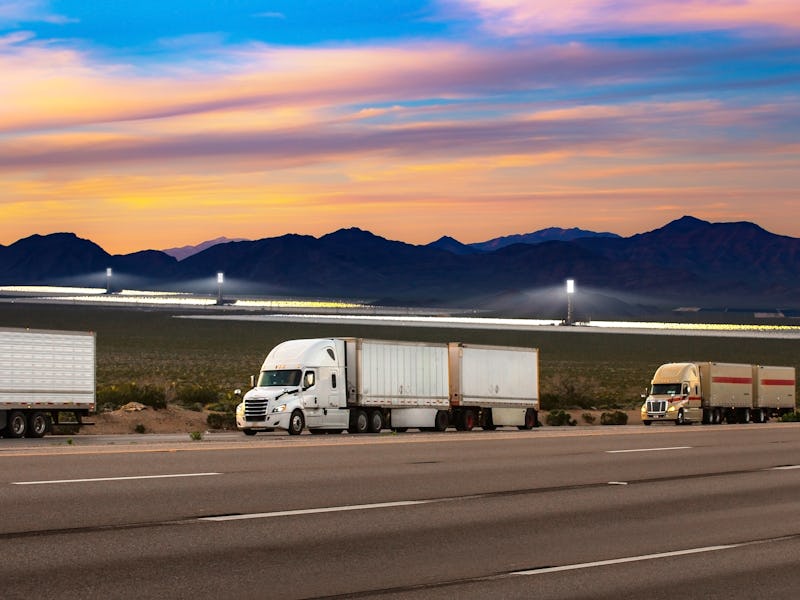Part of the trucking industry is already becoming fully automated
Freight brokerage isn't sexy, but it is crucial to a machine-driven future.

The trucking industry employs a lot of Americans, and it’s quickly becoming more and more automated. Around 3.5 million Americans work as truck drivers—driving an array of different types of vehicles—and millions more work in other jobs that are within the industry or closely connected to it. It will be a while before we have fully autonomous eighteen-wheelers transporting goods across the country, but some parts of the trucking industry are already becoming fully automated.
One behind-the-scenes part of the trucking industry is called freight brokerage. Freight brokers are essentially middlemen that connect shippers with products to move to carriers that can transport them. Many businesses around the country don’t have contracts with trucking companies, so they rely on freight brokers to get their products where they need to go.
A Seattle-based trucking software company called Convoy recently announced it has completely automated its brokering of loads to carriers. That means the process of getting connected with a carrier, load pricing and everything else is all done without any human involvement.
“Convoy’s digital freight network combines our dense network of carriers with the use of machine learning models to fully automate the process of matching and pricing a truck to a load, which can happen in minutes, not hours,” the company wrote in a blog post.
The company says this faster, more efficient system will reduce costs for shippers and make sure carriers are filling all of their trucks. Convoy says this will also allow its employees to focus on other important projects.
“With automation reducing manual work, Convoy’s operations team can focus on establishing new markets and expanding our carrier base to meet our growing demand,” the blog post says.
It’s unclear if jobs were lost due to this development at Convoy. What is clear is the trucking industry is increasingly becoming automated, and it’s going to have a major impact on the labor market.
Researchers indicate the trucking industry could lose hundreds of thousands of truck driving jobs per year once autonomous vehicles start being widely adopted by transportation companies. Millions of other jobs will be at risk within the trucking industry as other forms of work become automated. Automation will certainly create new types of work in this industry, but it doesn’t seem likely the industry will gain nearly as many jobs as it loses.
See also: What will life look like when most jobs are automated?
Outside of trucking, automation is starting to threaten many other types of transportation jobs across the country—thanks to the development of the self-driving car and companies starting to adopt technologies like drones to deliver goods. We appear to be entering a time when transporting products will largely become a robot’s job.
Convoy may just be one part of the trucking industry but automation will find its way into every other part of the trucking industry in the future. The company might help reduce the cost of goods, since fewer workers will be required to get us the things we need, but it also means a lot of people are going to find themselves struggling to find a job as robots slowly replace human workers.